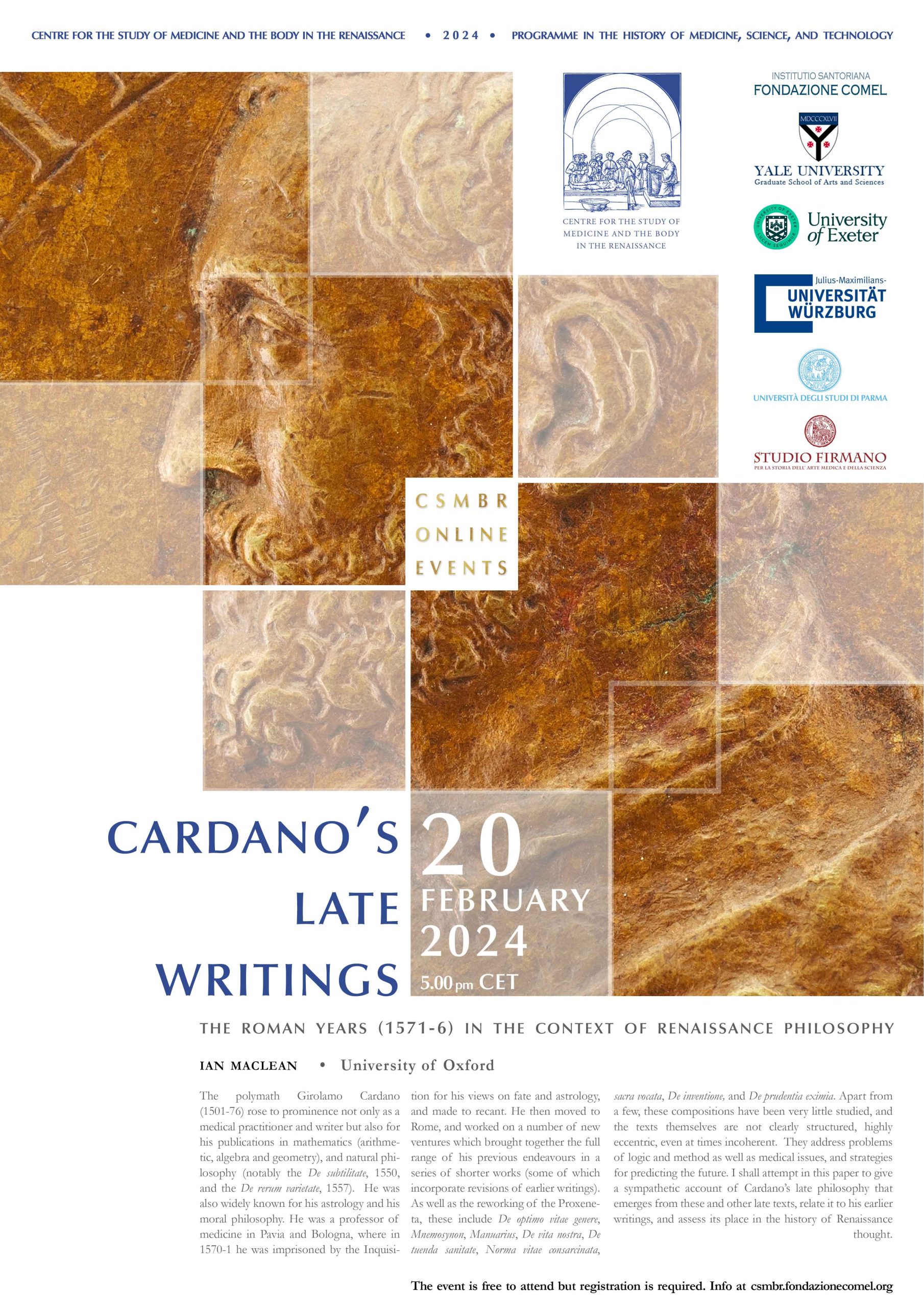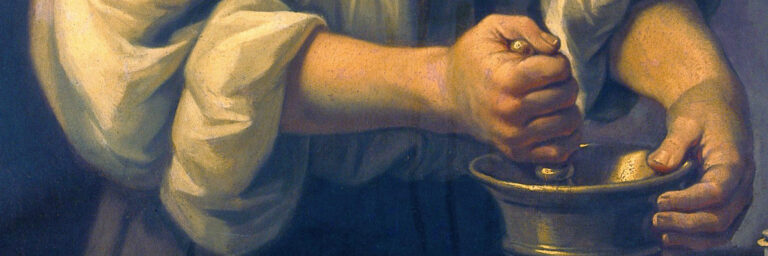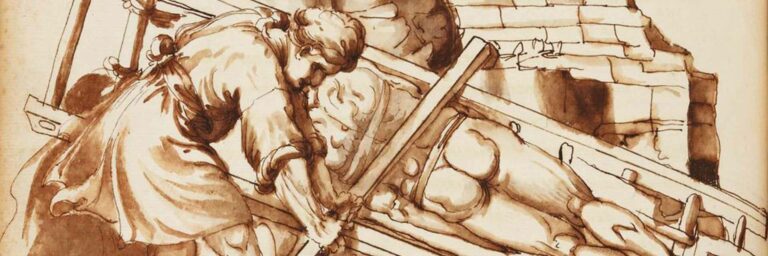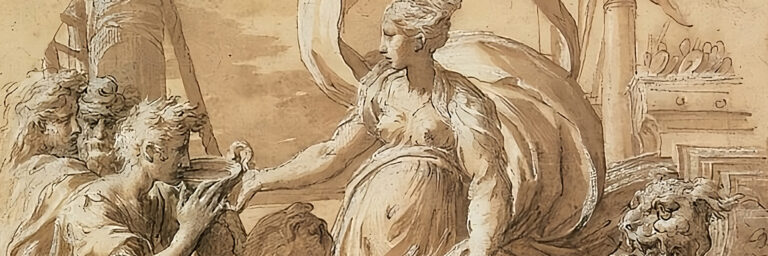Cardano’s Late Writings
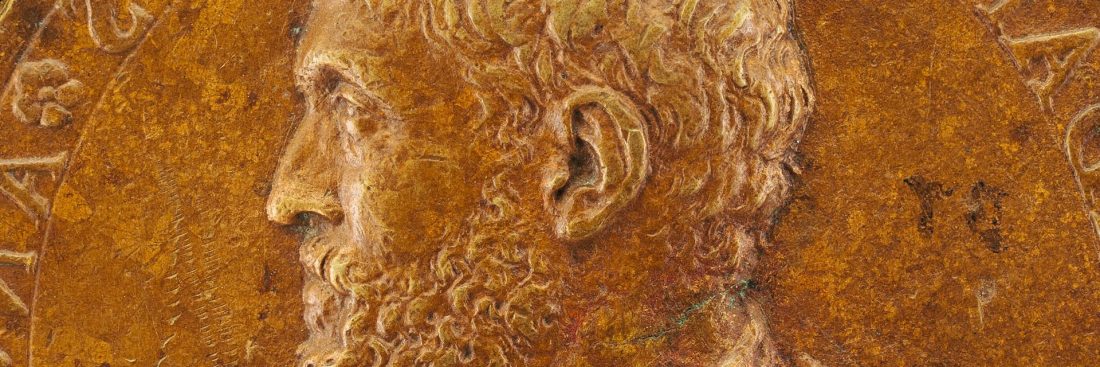
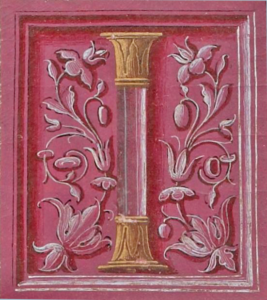
Cardano's Late Writings
The Roman Years (1571-1576) in the Context of Renaissance Philosophy
Ian Maclean
20 February 2024 – 5 PM (CET)
The polymath Girolamo Cardano (1501-76) rose to prominence not only as a medical practitioner and writer but also for his publications in mathematics (arithmetic, algebra and geometry), and natural philosophy (notably the De subtilitate, 1550, and the De rerum varietate, 1557).
He was also widely known for his astrology and his moral philosophy. He was a professor of medicine in Pavia and Bologna, where in 1570-1 he was imprisoned by the Inquisition for his views on fate and astrology, and made to recant. He then moved to Rome, and worked on a number of new ventures which brought together the full range of his previous endeavours in a series of shorter works (some of which incorporate revisions of earlier writings).
As well as the reworking of the Proxeneta, these include De optimo vitae genere, Mnemosynon, Manuarius, De vita nostra, De tuenda sanitate, Norma vitae consarcinata, sacra vocata, De inventione, and De prudentia eximia.
Apart from the Proxeneta and De vita nostra, these compositions have been very little studied, and the texts themselves (published posthumously from manuscripts in the most part) are not clearly structured, highly eccentric, even at times incoherent.
They address problems of logic and method as well as medical issues, advice for the conduct of life, and strategies for predicting the future.
In Nancy Siraisi’s words, an important component of Cardano’s broad project was ‘to master predictive sciences and comprehend the intersection of law and contingency.’
In the light of this comment, I shall attempt in this paper to give a sympathetic account of Cardano’s late philosophy that emerges from these and other late texts, relate it to his earlier writings, and assess its place in the history of Renaissance thought.
About the Speaker ...
Ian Maclean is Emeritus Professor of Renaissance Studies at the University of Oxford and Honorary Professor at the University of St Andrews.
The general focus of his research is on the organization and transmission of knowledge in early modern Europe, encompassing the history of interpretation in higher faculties like law, medicine, and theology, as well as the economics and modalities of the trade in learned books during that period. Maclean has completed a third volume titled Episodes in the Life of the Early Modern Learned Book, released in 2020 for Brill and has also completed a study on the reception of Hippocrates in late seventeenth-century Europe, set to appear in a volume co-edited by Dmitri Levitin and himself, titled The Worlds of Knowledge and the Classical Tradition in the Early Modern Age (Brill, 2021). His current project involves studying the last writings of Girolamo Cardano, including a partial edition of Cardano’s final work, De prudentia eximia.



